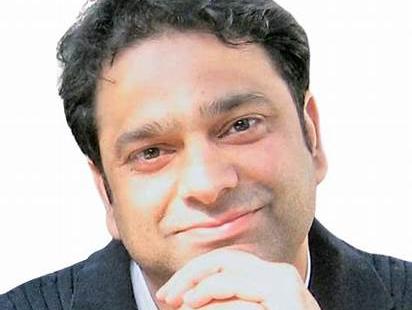
06 Nov Alumni Spotlight – Manav Mehra ’96
From banking with global institutions to building and scaling multiple ventures, Manav Mehra, Class of 1996, has carved a dynamic path in finance, entrepreneurship, and leadership. Currently serving on Woodstock School’s Board, Manav also plays an active role as one of the Alumni Ambassadors representing India and is a leading force in keeping the Delhi alumni community connected. He runs two successful businesses — a financial services firm specializing in private equity investments and analytics, and a digital marketing company. In this Alumni Spotlight, he shares insights from his journey, lessons from his Woodstock days, and advice for students aspiring to enter the world of business and finance.
Arav: To start off, could you please introduce yourself and tell us what you’re currently working on?
Manav Mehra: I’m currently serving on the General Body at Woodstock. Additionally, I’m running a financial services firm, and we’re focusing on a lot of private equity investment in the tech space. We do risk analytics and financial analytics and primarily a lot of due diligence and analytical work for firms in the US including accounting, bookkeeping, and risk assessments and modelling. Apart from that, I also own this marketing firm. So, we’ve got these two businesses running, and that’s primarily where I’m spending most of my time. The digital marketing firm has been around for four years, while the financial services has been around for about 10 years. Before that – I’m from finance, and I was a banker for about 15 years with Standard Chartered, ABN Amro and then started my own company which got acquired in 2017-18, which is pretty much all what I’ve been working on.
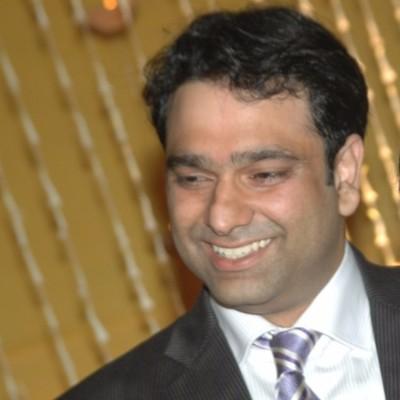
Arav: As someone from a financial and business-oriented field, how did you realize your interest, and did Woodstock help you realize your goals in this field?
Manav Mehra: Yes! I started out in finance with General Electric, and I was in the finance division in college. At Woodstock I took commerce and studied economics/accounting which really helped me build a foundation. What really I think helped from Woodstock is the ability to do critical thinking. At Woodstock you have to manage the resources you have currently such as budgeting and also making the most of what you have. Woodstock also guides you to gain the ability to make decisions you face in real life. I think Woodstock helped me with that. Plus I built my base in economics when I was studying, which helped me get into business school and banks and finance further. So, it all really started from here.
Even when we were in school, as you know, we would have a student council or something. You would end up managing some budgets. And you would end up having to do some accounting. So that kind of builds your interest in entrepreneurship also. Finance and basically business development come as part and parcel of that. So that’s what I think about how it started. And then you know life takes you on many journeys, and from there we’ve started building. I built multiple, scaled and sold some businesses, and it’s been a very interesting mixed bag of things. But your experience also helps you with that.
Arav: You’ve had a lot of experience in business management, and I was wondering if you have any tips you could give aspiring students who want to be in finance, who want to go to business school, and who would like to follow a path that’s similar to yours.
Manav Mehra: So, I think every path is different. I grew up in a very different age and era. I think when I graduated from Woodstock, email had just started. I remember seeing the first email when I was just graduating, and the Internet had not really caught up. It was a very different time. And everybody’s going to have their own, but what I would say is that as far as tips go, there are two or three things you want to be very sure of. One, if you want to start a business, first work for somebody else for a little bit of time. That’s very important. Avoid getting straight into a business from day one. Even if for a year or one and a half years, just go and spend, you know, just work for somebody else. It could be a company. It could be an individual. Secondly, is that you’re going to fail more than you succeed, which is why you cannot give up. A lot of people just give up once they have their first setback. So, when you’re starting a business, or when you’re doing entrepreneurship, or you know, when you’re going at it on your own, you’re going to have a lot of pushback. You’re going to have a lot of failures. So, at that point, it’s very important to dust yourself off and carry on. Because then when you win, it’s going to be worth it. Third, I think find your lane. There’s a saying you must do what you don’t want to do to eventually do what you love to do. So even if you want to start off, and you don’t want to do something, you must do it to get the experience so that eventually you can do what you want to do.
For example, I knew that I wanted to start my own business, but I had to go through the grind of actually working for these large companies. The corporate field gave me the experience, the network, and it gave me basically the know-how – how to start and some vision into what it could look like.
Lastly, I think you must network very well. I must encourage every kid, every student, to network as much as they can, meet as many people, talk to as many people as possible. You don’t have to go with an agenda. Just go and see what’s happening, what’s happening in the world, what people are doing. You know, shake some hands, collect some cards. It’s very important. So, I think these are four or five things that I would suggest. And these can – these will – work in any business, no matter what you do.
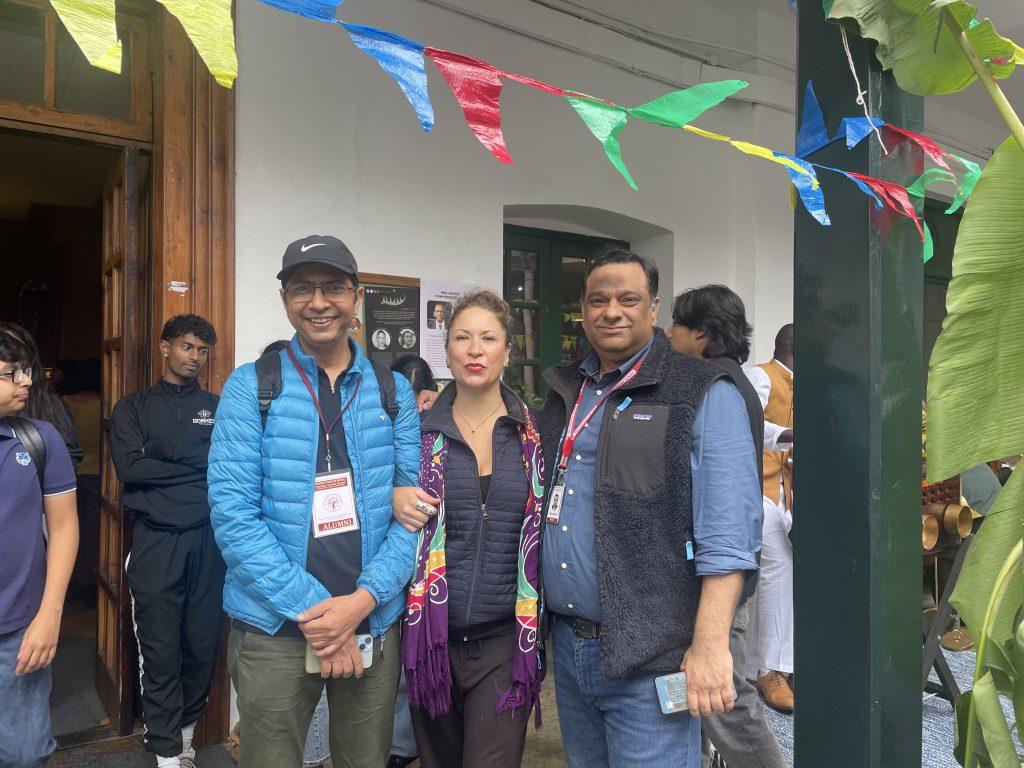
With classmates: Rajesh Agarwala (Left) and Meilin Rohrer (middle)
Arav: Do you have any formative story from your own journey?
Manav Mehra: I mean there are lots, right? I mean, like, if you want to get into – either finance or the financial world – that could be commercial banking or investment banking. Could be financial advisory, a CFA, a CPA, a chartered accountant in India. Whatever you want to be – an investment banker or a private equity person or whatever it is that you want to do. It is a very large field. I think it’s very important that you have to stay the course, as there’s a saying that nothing is free in finance. It’s very important for all aspiring students or financial entrepreneurs to stay on course, which means you have to go through the process of understanding how the industry works. There is no shortcut to this because it can become very costly.
On the other hand, like for example an event which happened when I was about to basically merge my first company. We had to merge into a larger company, and I was given two options. One was to do an equity swap or take cash and just go away. I chose to do an equity swap and not take the cash. Reason being, I saw that if I was to walk away with the cash I would not be a partner to the growth in the bigger company, because that’s a one-time deal. But if I took equity, then I would benefit from the growth of that company. Which worked out really well! It’s very important that you don’t just cash out very quickly. For example, Amazon took 17 years to turn a profit, right? The first 17 years Amazon made losses in the world’s largest economy (the US). Now it’s a trillion-dollar company, right?
So, I think there’s a very interesting message in that, but that doesn’t mean that you keep making losses in the business you start. Jeff Bezos only owns 16%, but it’s 1 trillion – 16% of 1 trillion. So, you have to see the long term. You have to see where you can take and always be a part of any growth story. That would be like a big takeaway I would tell everyone.
Arav: Switching gears a little, what is your favorite memory at Woodstock?
Manav Mehra: Oh, that’s a hard one, man. I think my favorite time, honestly, was the Sundays when we would all just sit in dorms, and everybody would just hang out in everybody else’s room, and we’d have our own cookout. We didn’t have much stuff like you guys have now, right? But whatever we could, we would collect from everybody. We would do this big communal cooking every Sunday, and that was a lot of good fun because there was a lot of bonding at that point, and also a lot of creativity came around. Somebody had tuna, somebody had noodles, somebody had ketchup, somebody had just a pickle, and you would make something around that which all of us would share. Basically just being on a normal Sunday and not really having an agenda and moving on with the whole day with your friends. I’m sure you guys are doing the same thing, but that was one of my favorite things to look forward to. Those Sundays where you just didn’t have an agenda. You just hung out with your friends and listened to music, played music, played some sports. There are so many favorite memories of mine, but if I could really narrow it down, I think that was very special. We still talk about all that today when I meet my friends.
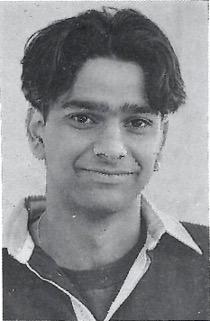
Arav: Is there any favorite spot you have on campus? Some place which you would call your own?
Manav Mehra: In dorms, the hostel patio was one of my favorites. I would love to sit outside there in the sun at times. Up at school, I would say it was probably the senior room. Then also right outside where there is now the Tangerine Boxx, that was another place I used to like climbing up.
Arav: Is there any piece of advice for Woodstock students that you would recommend?
Manav Mehra: Yes, definitely! I say this at all the alumni events and whoever I meet, and I’ll say it again. We went to Woodstock at a very different time, and we were very great. We were very lucky because we didn’t have mobile phones, and we only had each other to do everything with. If you wanted to be entertained, you had your friends. If you wanted to go out, you had your friends. My only suggestion is to get off your devices and just be with your friends, and it doesn’t have to be your classmates. It could be juniors or seniors. Just go talk to them, go out with them, and meet them.
Woodstock’s a special place. You’re in a special time, and I can’t stress this enough. Be connected to everybody in the school. It doesn’t matter if you’re in Twelfth, and the person is in Ninth or Tenth. Talk to them. Meet them. Get to know them. I see that’s missing these days. When we were there, we knew everybody. Two years senior, two years junior – we knew everybody’s name. We knew everybody and where they came from, and still today we know where these people are, and we can hang out with them. So, my advice is to get off your phone and talk to everybody around you. Soak in that environment because this time won’t come back. I’m sure everybody’s like, “Oh, I want to get out of school. I want to be independent.” Once you come out into the real world, it’s a very different thing. I would just recommend that everybody go out. Just meet everybody in the school. Know your juniors and seniors, play a sport with them, go on a hike – because this is where you will build your bond. Once you’ve graduated, then it’s very tough.
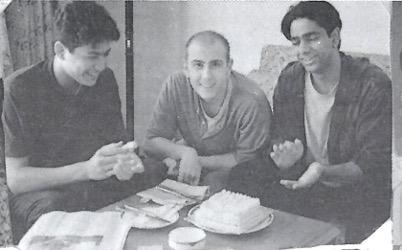
Arav: I know you’re an excellent leader, and you have a lot of different business opportunities. What are some skills that you think people should possess and that they should work towards to become a good leader? What would you recommend students to work towards?
Manav Mehra: To start off, I guess it’s not really a skill, but if you can be in any front facing position. If you’re in sales, customer service, networking, or anything similar, that is very helpful in any business you do or any job you do. Try to be on the front face. Front facing is when I am actually either talking to another decision maker, client, or somebody who is also in a position of power. I should be the front face of the organization. Even if you’re an introvert, come out of that. Try to do as many of those exercises, because if you’re front facing, it’s going to help you your entire life. Try to go to as many events, meet as many people, shake as many hands as possible, and try to sell. If you can develop a skill set where you can actually talk to people and sell, you will never be in want of anything in your life. It’s not only about business or entrepreneurship. If you’re working in corporate, for example somebody wants to work for Merrill Lynch, Sequoia, or Goldman Sachs, the people who are front facing will always rise faster than the people who are not.
It’s very easy to be in the shadows in the back, processing things and getting stuff done. There’s a saying that goes, “Sales makes the world go round.” You’re all selling something eventually. If you can develop a sense of a sales skill set, I wouldn’t say marketing, but a sales skillset or a front ending skillset, it’ll help you no matter what you do. You could be a banker, a pen salesman, a car dealership owner. Whatever it is, just be front facing.
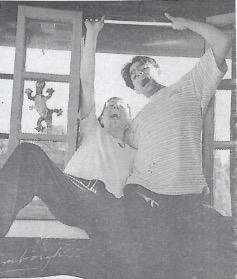
Arav: Is there anything else you want to add about Woodstock – maybe a perspective as part of the General Body of the Board?
Manav Mehra: I think Woodstock is a very unique place. Don’t be in a rush to graduate, and make the most of it. Make the most of your friendships. Cherish what you’ve learned. It’s going to help you in your entire life. I keep saying it’s a special place because there is no other school like Woodstock, believe me. It’s very different. I think it’s probably the best place to really grow up in. I still believe that even though I graduated in the mid-nineties. Make the most out of Woodstock. Cherish and value the connections that you have made, and keep them nurtured your entire life. My closest friends are still from school, by the way. I’ve been to many colleges after school, and my best friends are still from Woodstock. This is what I don’t want this generation to miss out on. Basically make that connection. Keep that bond alive. Otherwise, I’d say the school is doing great, and it’s a fantastic place. I’m sure you guys have your own challenges, but I think you should consider yourself lucky to have had this education here.
Interview by Arav Srivastava, Class of 2025






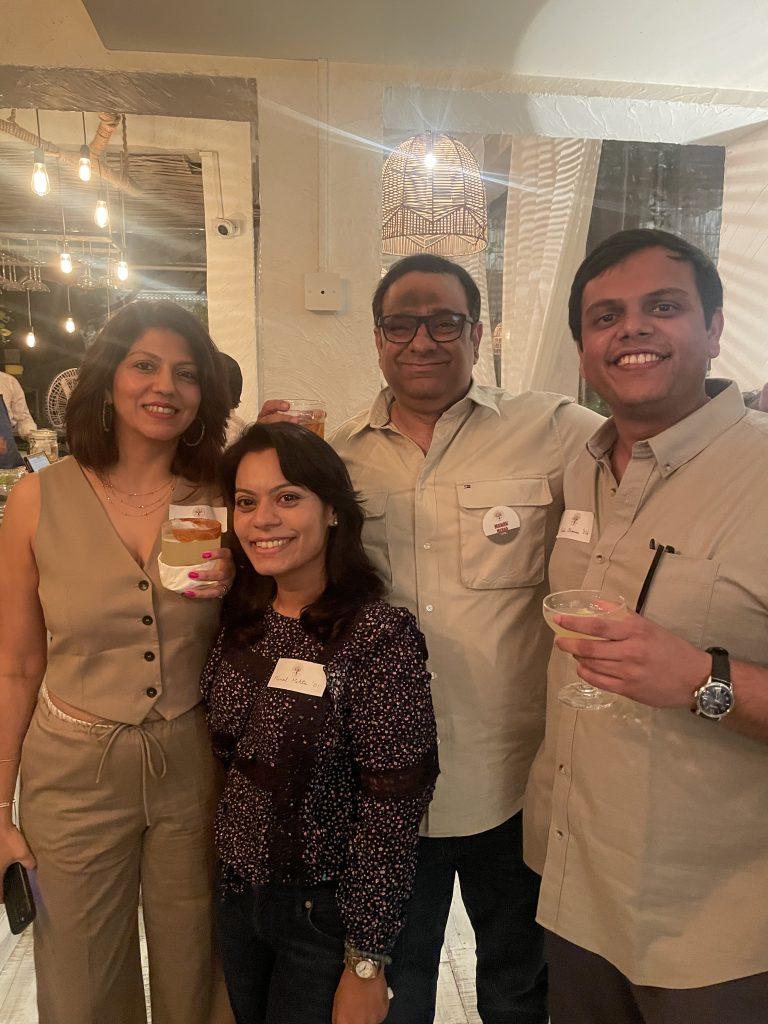
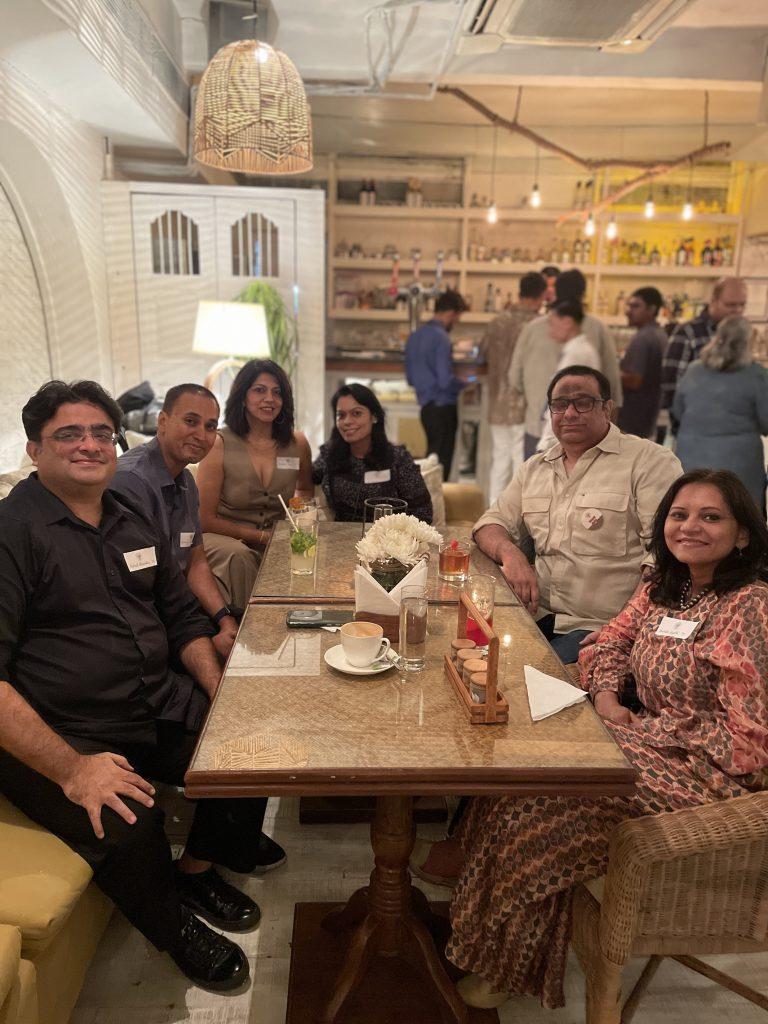
No Comments